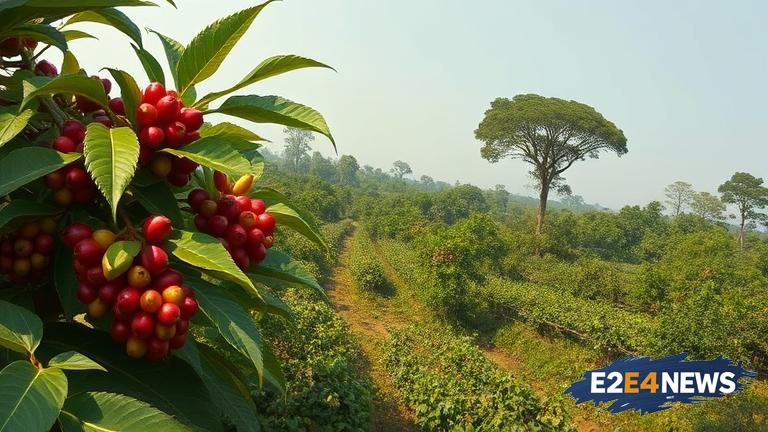Zimbabwe’s coffee production has been on a decline in recent years, with the country’s coffee output decreasing by a significant margin. This decline has been attributed to a number of factors, including climate change, lack of investment in the coffee industry, and the economic challenges facing the country. The decline in coffee production has had a devastating impact on the livelihoods of farmers who rely on coffee as their main source of income. Many farmers have been forced to abandon coffee farming and switch to other crops, which has resulted in a loss of jobs and income for many families. The decline in coffee production has also had a negative impact on the country’s economy, with the coffee industry being a significant contributor to the country’s foreign exchange earnings. The government has been urged to intervene and provide support to the coffee industry, including providing funding for irrigation systems and other infrastructure. However, the government’s efforts have been hindered by a lack of resources and corruption. The decline in coffee production has also been attributed to the lack of access to markets, with many farmers struggling to sell their coffee beans. The country’s coffee industry has also been affected by the COVID-19 pandemic, which has disrupted global supply chains and led to a decline in demand for coffee. Despite the challenges facing the coffee industry, there are still many farmers who are committed to coffee farming and are working hard to revive the industry. These farmers are using innovative techniques, such as using solar-powered irrigation systems, to improve their yields and increase their productivity. However, more needs to be done to support these farmers and to address the challenges facing the coffee industry. The government and other stakeholders need to work together to provide support to the coffee industry, including providing funding, training, and access to markets. This will require a coordinated effort and a commitment to reviving the coffee industry. In addition to the economic benefits, coffee farming also has a number of social and environmental benefits, including providing employment and improving the environment. Therefore, it is essential that the government and other stakeholders take urgent action to address the decline in coffee production and to support the coffee industry. The future of the coffee industry in Zimbabwe depends on it, and the livelihoods of many farmers and their families are at stake.
